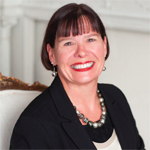A: To me, mentoring involves everything that I do—bringing that excitement to the people that I train or that I encounter along the way. … I try to point out the things that are exciting. I try to make sure that people get credit for what they do. I always want to see the people that worked with me become first authors on papers, and get the recognition for their achievements. That makes me feel good, and it certainly reflects on me.
Q: What advice do you have for the next generation of rheumatologists?
A: I think the most important thing is to find something that is fulfilling and intellectually exciting. You know, financially, rheumatology is not the best field to go in to. You need to be excited about what you do. I don’t know that it matters whether you pick lupus or osteoarthritis. Find someone who challenges you, find someone whose intellect you are excited by, and learn from that person.
Q: What has changed the most since you started practicing rheumatology?
A: In lupus, we’ve gone from very little understanding, either from the pathophysiology of the disease or the availability of new treatments, to understanding how they work. I think that’s one of the things I’m proudest of in my career. I’ve really had an opportunity, maybe worldwide, to change how patients with lupus are treated.
Q: What does an award from your peers mean to you?
A: The recognition that I get from my peers is certainly a very large part of what makes me feel fulfilled. We are still a small enough subspecialty that this is possible; most of us have heard of all of the people in rheumatology who do good things. That’s very rewarding.
ACR Distinguished Clinician Scholar Award
 Sharon Kolasinski, MD, Professor of Clinical Medicine, Division of Rheumatology, University of Pennsylvania Perelman School of Medicine, Director, Penn Musculoskeletal Center, Philadelphia
Sharon Kolasinski, MD, Professor of Clinical Medicine, Division of Rheumatology, University of Pennsylvania Perelman School of Medicine, Director, Penn Musculoskeletal Center, Philadelphia
Background: Teaching makes Dr. Kolasinski tick. She has worked as program director of the UPenn rheumatology fellowship and rheumatology director of the Penn Musculoskeletal Center, and helped develop the medical school curriculum for the newly formed Cooper Medical School of Rowan University. She’s even embarking on leadership lessons at the renowned Wharton School of Business.
She relishes teaching her patients about diseases and treatments, and how they can “take the best possible care of themselves,” she says. “And teaching our trainees about how amazing rheumatology is, and what a privilege we have in getting to know our patients, being part of what can make such a difference in their lives.”



